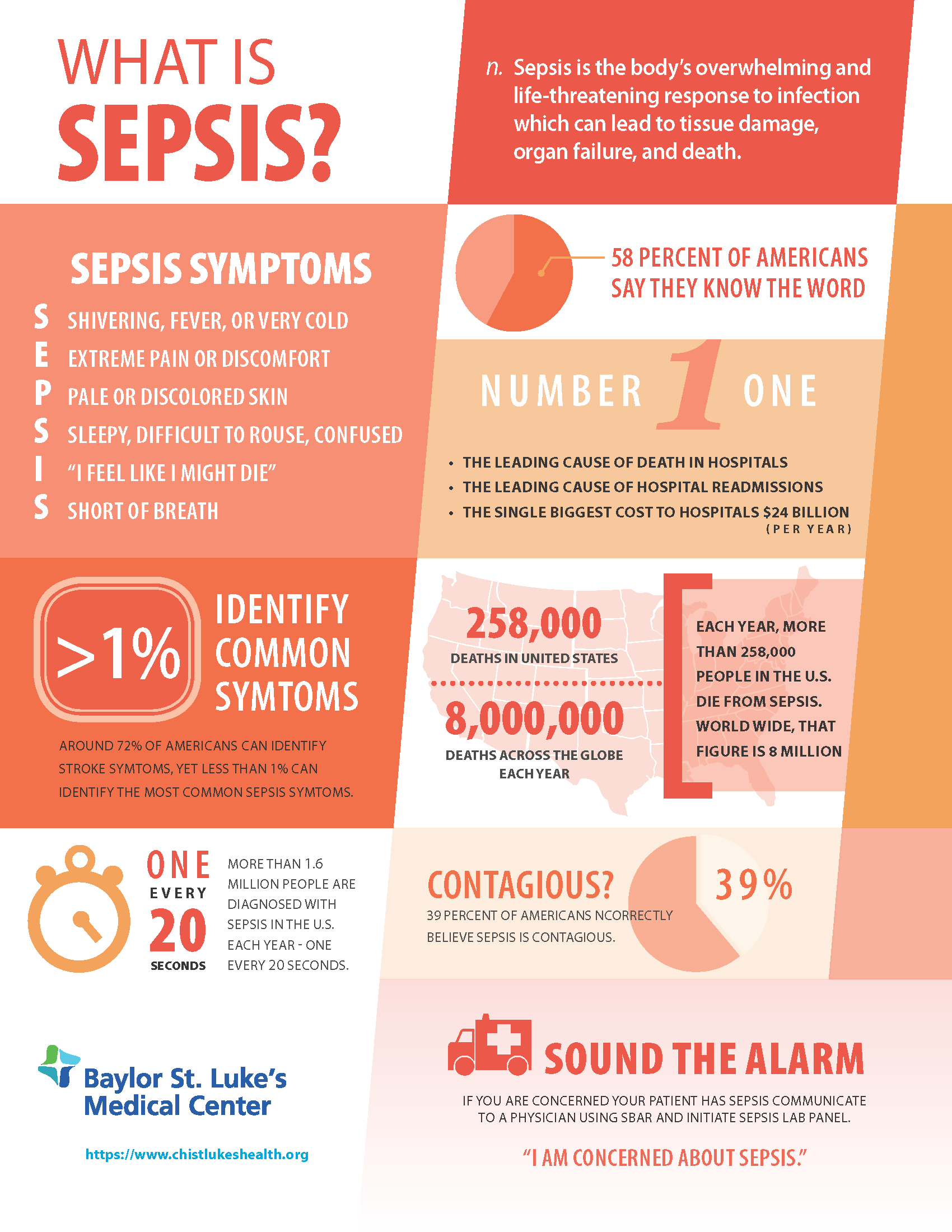St. Luke's Health joins CommonSpirit.org soon! Enjoy a seamless, patient-centered digital experience. Learn more

If you have an infection, your body can develop a life-threatening reaction known as sepsis. Sepsis takes more than 258,000 American lives each year according to the Centers for Disease Control. Here’s what you need to know about sepsis and how you can spot the symptoms.
Sepsis occurs when your immune system responds to an infection in an extreme manner that causes inflammation throughout the body. Something as simple as an untreated cut or as serious as improper healing from a procedure can provoke the response.
Typically, sepsis develops in people who are already sick and have weakened immune systems such as seniors and infants. It progresses rapidly and can cause tissue damage, organ failure, and death if not promptly treated.
Sepsis can develop in anyone who has almost any infection. The four types of infections most commonly linked with sepsis include:
If your body already has one of these infections, it can start a chain reaction that leads to sepsis.
Though no one is immune to sepsis, some people have a higher risk, including:
Sepsis can present a combination of symptoms, including:
If you have an infection and any of the above symptoms, seek medical treatment immediately. The final stage of sepsis, known as septic shock, can be fatal.
Recognizing the signs of sepsis can save your life. If you or someone you know is showing any of the above symptoms, don’t waste another minute. Locate your nearest St. Luke’s Health emergency room now to get quality care when you need it most.

Looking for a doctor? Perform a quick search by name or browse by specialty.